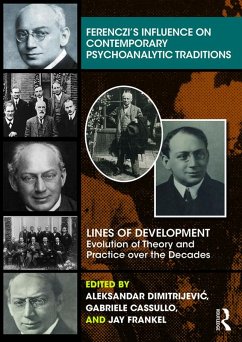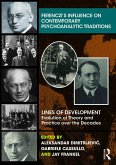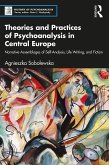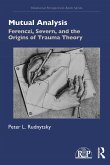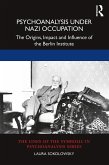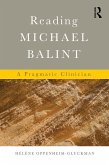The book is divided in five sections. 'The historico-biographical' describes Ferenczi's childhood and student days, his marriage, brief analyses with Freud, his correspondences and contributions to daily press in Budapest, list of his patients' true identities, and a paper about his untimely death. 'The development of Ferenczi's ideas' reviews his ideas before his first encounter with psychoanalysis, his relationship with peers, friendship with Groddeck, emancipation from Freud, and review of the importance of his Clinical Diary. The third section reviews Ferenczi's clinical concepts and work: trauma, unwelcome child, wise baby, identification with aggressor, mutual analysis, and many others. In 'Echoes', we follow traces of Ferenczi's influence on virtually all traditions in contemporary psychoanalysis: interpersonal, independent, Kleinian, Lacanian, relational, etc.
Dieser Download kann aus rechtlichen Gründen nur mit Rechnungsadresse in A, B, BG, CY, CZ, D, DK, EW, E, FIN, F, GR, HR, H, IRL, I, LT, L, LR, M, NL, PL, P, R, S, SLO, SK ausgeliefert werden.
"Moving between tradition and innovation, this book provides a comprehensive overview as well as new findings and incisive thinking to restore Ferenczi to his proper place in the history of psychoanalysis. This wonderfully rich book makes clear that we would not be the psychoanalysts we are today, if Sandor Ferenczi had not been the thinker, the clinician and the person he was." --Professor Peter Fonagy, OBE FMedSci FBA DipPsy FAcSS PhD, Chief Executive, The Anna Freud Centre, Professor of Contemporary Psychoanalysis and Developmental Science, Head of the Research Department of Clinical, Educational and Health Psychology, University College London
"This extraordinarily comprehensive volume, with contributions by a galaxy of leading scholars and clinicians, will become an indispensable resource for all future work on Ferenczi, the most important, influential, and inspiring forerunner of contemporary self psychology, relational psychoanalysis, and trauma theory." --Peter L. Rudnytsky, University of Florida and Chicago Institute for Psychoanalysis

